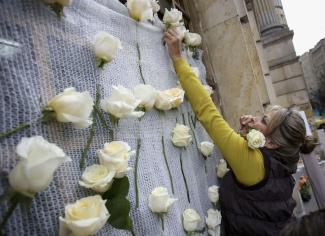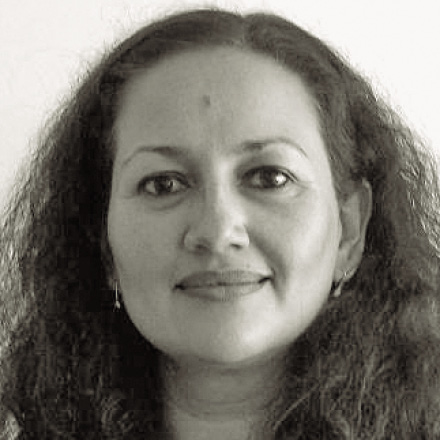Peace process
Hopes and fears

Colombia’s President Juan Manuel Santos and FARC (Fuerzas Armadas Revolucionarias de Colombia – revolutionary armed forces of Colombia) leader Rodrigo Londoño signed the new agreement on 24 November. It is the second one, and it is marked by more pragmatism and less euphoria. There will not be another referendum. Colombia’s Congress is supposed to ratify the agreement.
The first agreement was signed in September, but – in a surprising development – not accepted in the referendum. Voter turnout was a mere 37.4 %. Political leaders and civil-society organisations failed to rally the masses for peace.
The wounds are deep, and the country is split. Many Colombians think that FARC fighters deserve harsher punishment than was foreseen by the first agreement. Álvaro Uribe, the former president, and his party Centro Democratico campaigned for „No“. Justice as defined by the new agreement is more stringent.
Colombian society wants to see the criminals in prison “within five minutes”, according to María Clara Galvis Patiño of the UN Committee on Enforced Disappearances. She told a conference hosted by Heinrich-Böll-Foundation in Berlin that jail terms are considered a panacea. She bemoans a tendency of demonising the guerilleros and glorifying the security forces, even though the military and paramilitary troops also committed crimes in the civil war.
It is a huge challenge to organise a peace process in a manner that satisfies all parties concerned. According to the new agreement, there will be a land reform, combatants will surrender their arms and become reintegrated in society, and a transitional justice system will be geared to the truth and the compensation of losses. Controversial issues are still that the FARC is set to become a political party and that fighters who confess will not be sent to prison but must only do labour service. The related clauses cannot be renegotiated, however, they were the price to pay for peace.
Those combatants who help to investigate crimes and report where victims were killed and buried will be sentenced to up to eight years of labour service, and their personal freedoms will be restricted. The new agreement also spells out that FARC fighters must reveal their assets and use their personal wealth to compensate victims or victims‘ relatives.
In the conflict, 6 million Colombians were displaced. More than 260,000 were killed, and thousands were tortured and raped. According to a study that was recently published by the Centro Nacional de Memoria Histórica, 60,630 Menschen “disappeared”. Yanette Bautista, an activist, demands that not only the FARC, but government forces and paramilitary troops must provide information relating to the fates of the persons concerned. Soldiers killed thousands of young men claiming they were guerilleros in order to demonstrate success and collect government rewards.
The clauses of the new agreement reflect some 500 proposals that were made by citizens, the opposition and victims organisations. It is a framework agreement, as many details must yet be hammered out. Colombia’s future now depends on the agreement’s public acceptance and implementation.
Bautista says the current situation is marked by “hopes and fears” and rather “difficult”. In her eyes, it is essential to avoid what happened in Guatemala and El Salvador, where transitions from civil war led to new conflicts. International monitoring is important, she adds.
Critics worry that FARC fighters may now join criminal gangs or other forces that might fill the vacuum left behind by FARC, for instance in the illegal drugs business. Powerful networks of paramilitary units, land owners and politicians, who resent socially just land reforms and leftist political activism, may also block reconciliation. Colombia’s second strongest rebel militia, the ELN (Ejército de Liberación Nacional) has been observing developments – and will pay attention to implementation of the peace agreement.
Sonja Peteranderl









